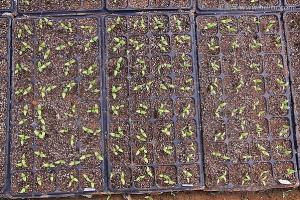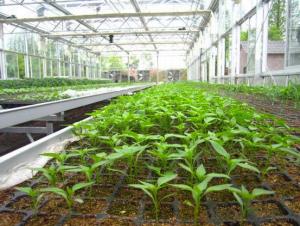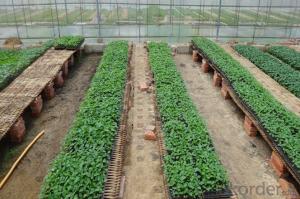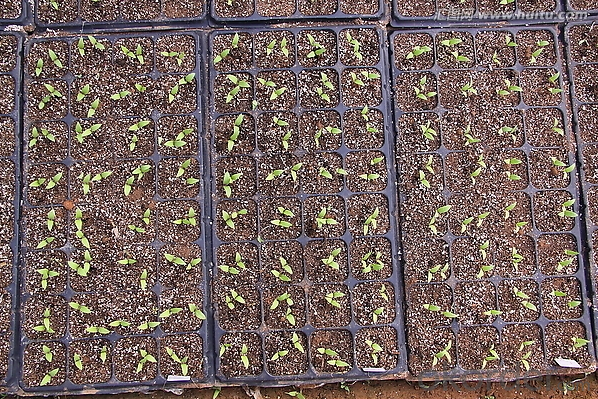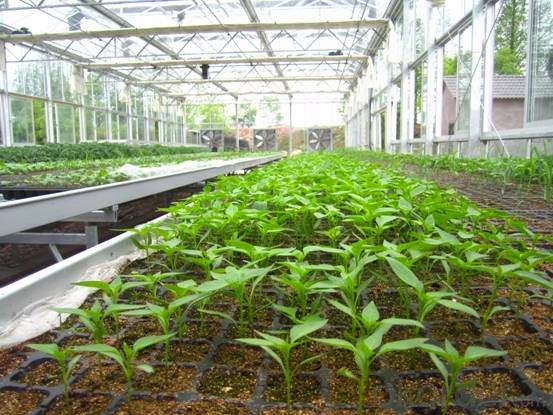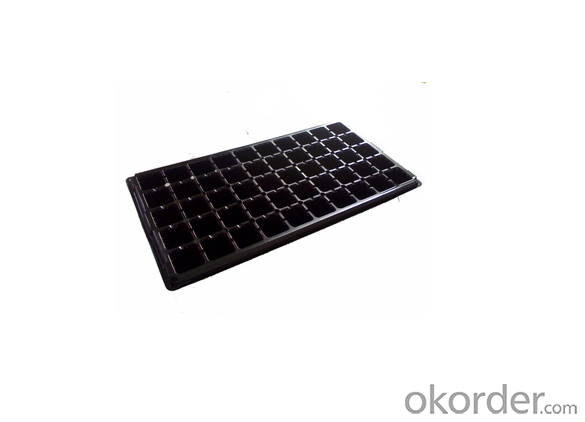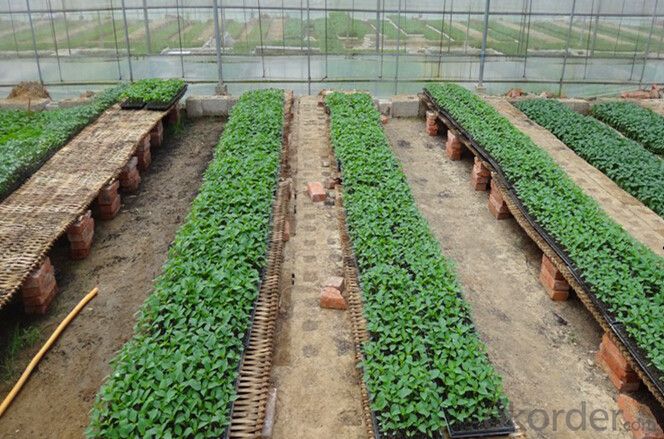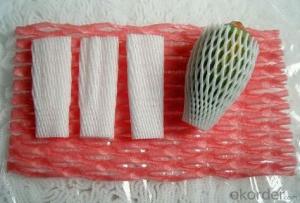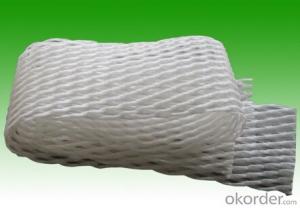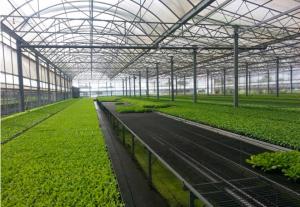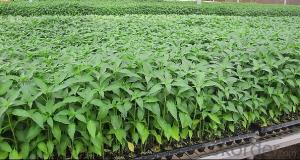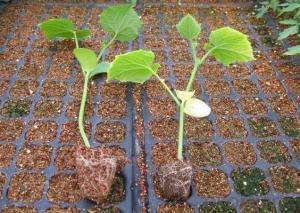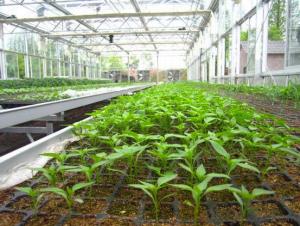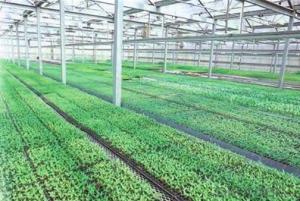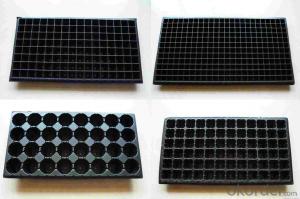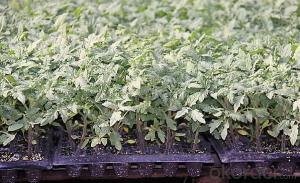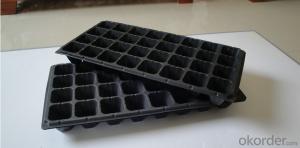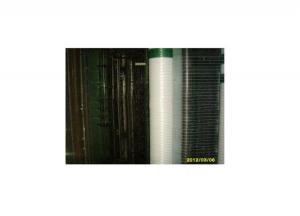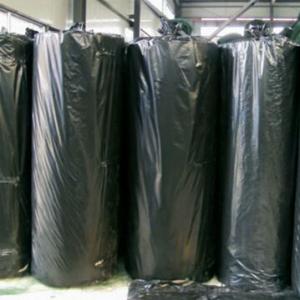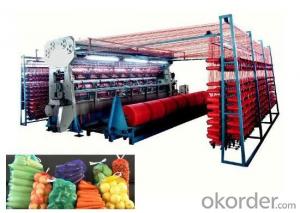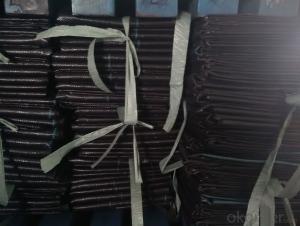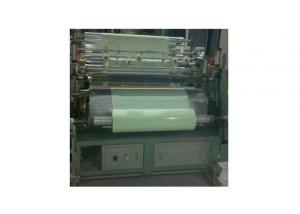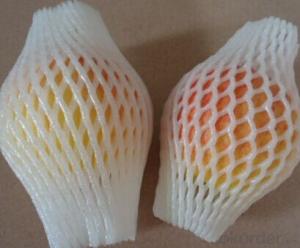Plug Trays (Growing and Seedling) Greenhouse Usage HIPS Made Plastic
- Loading Port:
- China main port
- Payment Terms:
- TT OR LC
- Min Order Qty:
- 3000 pc
- Supply Capability:
- 50000 pc/month
OKorder Service Pledge
OKorder Financial Service
You Might Also Like
Brief Introduction to CNBM:
CNBM International Corporation (CNBM International) is the most important trading platform of CNBM Group Corporation, a state-owned company under the direct supervision of State-owned Assets Supervision and Administration Commission of the State Council.
CNBM International is highly recognized by its business partners and clients all over the world and has obtained rapid development under the spirit of win-win. We will carry on the mutual beneficial, innovative and revolutionary trading structure as we did before, create value for our employees, share holders and clients and benefit the whole society in our future development.
Features of Plug Trays (Growing and Seedling) HIPS Made Plastic Plug Tray for Greenhouse:
· Material: HIPS
· Thickness: 0.5mm-1.5mm, Standard:1mm
· Weight: 80g(±5)g-230g(±5)g, Standard weight:155g(±5)g
· Size: length:490mm-540mm, width:190mm-345mm,depth:25mm-150mm
· Standard:540mmX280mm
· Cell count: 18-512
· Package: In Carton
· Warrenty: 8-10 times
Picture:
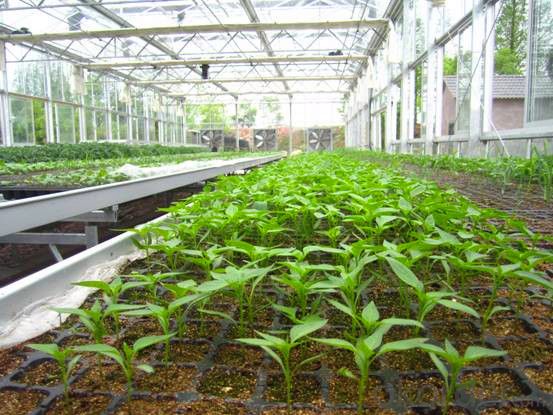
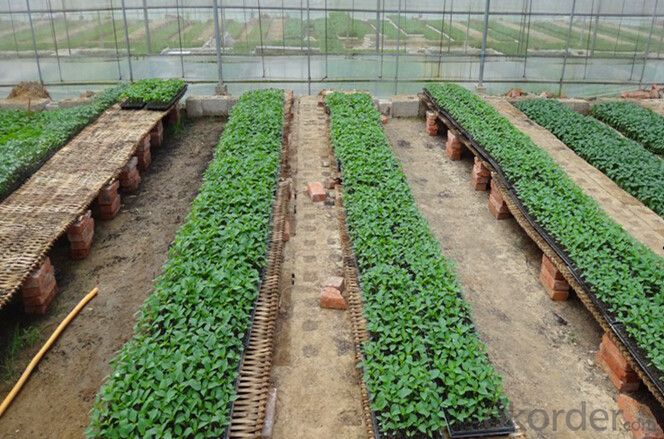
Specification of Plug Trays (Growing and Seedling) HIPS Made Plastic Plug Tray for Greenhouse:
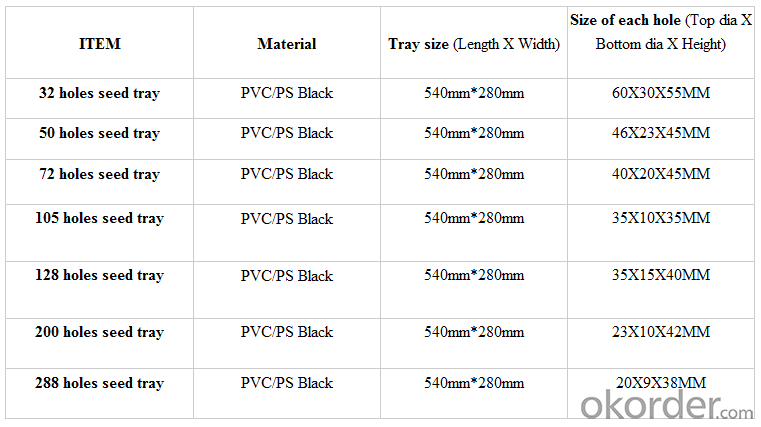
FAQ of Plug Trays (Growing and Seedling) HIPS Made Plastic Plug Tray for Greenhouse:
Q:1.How many times can the seed tray be used?
A: Under the same environment, it is decided by the thickness. Usually 0.6mm thickness can be used for 1 or 2 times.
1.0 thickness can be used for 3-4 times. 1.5 thickness can be used for 8-10 times.
Q: 2.How long is the production time?
A: Usually one to two weeks.
Q: 3.How is the seed tray being packaged?
A: They can be packaged in carton or pallets. Carton size is 1375px*725px*1250px.
- Q: How does agricultural plastic affect temperature and moisture control?
- Agricultural plastic can have both positive and negative effects on temperature and moisture control in farming. On one hand, plastic mulches, covers, and tunnels can help regulate temperature by trapping heat, creating a warmer microclimate that benefits crop growth. These plastics also reduce evaporation, thus conserving moisture and promoting better water management. On the other hand, improper disposal of agricultural plastics can lead to environmental issues, including increased temperatures in landfills and reduced soil moisture retention due to plastic's impermeability. Therefore, while agricultural plastic can have a beneficial impact on temperature and moisture control when used appropriately, it is crucial to consider its proper management to mitigate any negative consequences.
- Q: How do I prevent ground cover from smothering tree roots?
- One way to prevent ground cover from smothering tree roots is by regularly maintaining and trimming the ground cover. This includes keeping it at a reasonable distance from the base of the tree, ensuring it does not grow too thick or dense. Additionally, creating a mulch ring around the base of the tree can help by providing a barrier between the ground cover and the tree roots, allowing for better airflow and reducing competition for nutrients and moisture.
- Q: How do we deal with plastics in our country at present?
- Where there are people, there will be plastic waste. All kinds of plastic packaging, plastic film, shopping bags, woven bags, beverage bottles, plastic pots, plastic pots, plastic barrels, plastic toys, stationery, shoes, household appliances, vehicle bumper case, computer case, waste polyvinyl chloride pipe, industrial waste plastic products, plastic doors and windows, polyester products (polyester film, a bottle of mineral water the coke bottle, etc.) as well as in the molding waste and so on, can be seen everywhere, inexhaustible life and growth in nature!
- Q: How do you prevent disease spread in nursery tray cuttings?
- To prevent disease spread in nursery tray cuttings, several measures can be taken. Firstly, it is important to use clean and sterilized trays, tools, and equipment to avoid introducing any pathogens. Secondly, maintaining proper hygiene by washing hands and wearing gloves while handling the cuttings can prevent contamination. Additionally, regular inspection and timely removal of any diseased or infected cuttings can help prevent the spread of diseases. Lastly, providing optimal growing conditions such as appropriate temperature, humidity, and ventilation can help strengthen the plants' immune system and reduce the risk of disease transmission.
- Q: Hello guys ~~~got a questoin about plastic bags someone told me there are two types of plastic bags low density plastic bags and high density plastic bags does someone know which one use less material to produce most of people told me the low density plastic bags are more quot; greenerquot; than high density plastic bags but i found something from a website, it says : our low density plastic bags use 50 % of recycled materials, does that mean low density bags are more greener than hgih density if they use different materials???thanks
- You are probably refering to two forms of the plastic polyethylene, high and low density. Low density is probably the 'greener' of the two, but it can't be by much.
- Q: In our town we have no place to recycle. There has to be many more towns like mine across America. Everything we buy is mostly plastic so how much of this is actually recycled? I sure used to love my glass milk bottles.
- I believe all of it is recycled...you must live in a small town
- Q: Are nursery trays UV resistant?
- Yes, nursery trays are typically UV resistant to prevent damage caused by prolonged exposure to the sun's ultraviolet rays.
- Q: What are the risks of using agricultural plastic?
- One of the main risks of using agricultural plastic is its environmental impact. Improper disposal of plastic waste can lead to pollution of soil, water bodies, and wildlife habitats. Additionally, the production and disposal of agricultural plastic contribute to greenhouse gas emissions, exacerbating climate change. Furthermore, the use of plastic in agriculture can have negative effects on soil health and biodiversity, as it hinders natural processes and can leach harmful chemicals into the environment.
- Q: My horse is scared of plastic.What should I do?
- As others have suggested, hang plastic bags or something around the stall/pasture your horse is in so that it's exposed to them all the time. You could try getting your horse out of it's stall on a lead line and slowly approaching with a plastic bag, if it tries to get away follow it, if it stops and stands still take it away, so that it learns if it behaves and stays still the 'scary' plastic leaves it alone.
- Q: What are some common types of ground cover plants?
- Some common types of ground cover plants include creeping thyme, creeping phlox, vinca minor, sedum, and ajuga.
Send your message to us
Plug Trays (Growing and Seedling) Greenhouse Usage HIPS Made Plastic
- Loading Port:
- China main port
- Payment Terms:
- TT OR LC
- Min Order Qty:
- 3000 pc
- Supply Capability:
- 50000 pc/month
OKorder Service Pledge
OKorder Financial Service
Similar products
Hot products
Hot Searches
Related keywords
